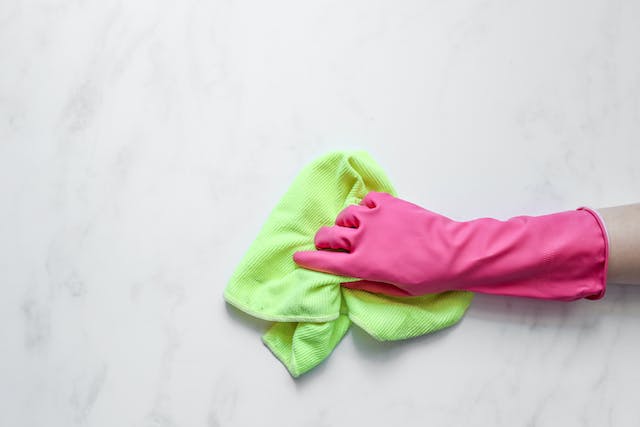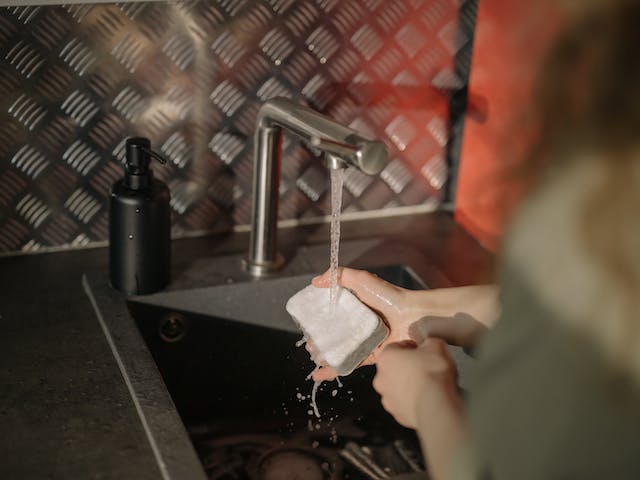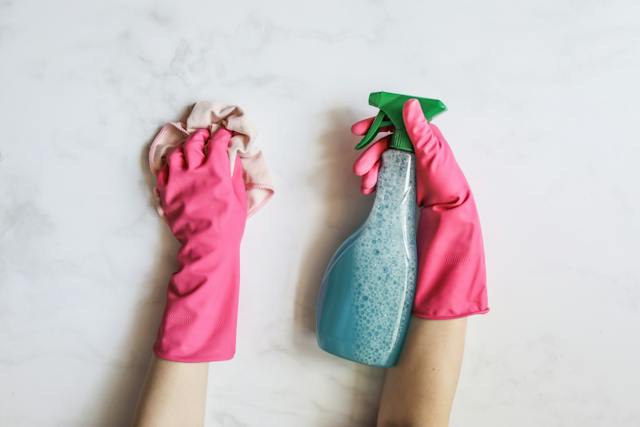Rodents have an uncanny knack for sneaking into our homes and workplaces, wreaking havoc, and bringing along a slew of problems. They’re not just troublemakers; they’re health hazards, too. But when you’ve successfully bid them farewell, the real work begins: rodent-cleanup.
It’s more than just picking up their droppings or clearing out their nests—it’s about taking back control of a space these furry troublemakers have invaded. Keep reading for our top tips on effectively cleaning up your area after a rodent infestation!
Understanding the Importance of Rodent Clean-Up
Mice and rats can leave behind more than just an unsettling feeling. Their droppings, urine, and fur can contaminate surfaces and introduce diseases like hantavirus, leptospirosis, and salmonellosis to your home.
Plus, these pests aren’t shy about where they use the bathroom. Rodents typically defecate and urinate wherever they roam, leaving behind a trail of waste as they crawl along. Ever curious about where rodents trek around? Look for feces and urine stains near baseboards, counter edges, and doorways.
Additionally, rodents gnaw on anything they can find to soothe their ever-growing teeth. This may cause structural damage in buildings, create fire hazards due to damaged wiring, and compromise insulation.
Loose wires and rat droppings may not seem like a big deal, but both can cause severe problems for your home and health!
Step-by-Step Cleaning Procedures
Before attempting your next spring cleaning, check out these tips. Cleaning may seem easy, but staying safe around areas mice have frequented is essential.

Assess the Scope of Contamination: Begin by assessing the extent of the rodent infestation and identifying areas affected. Look for droppings, nests, gnaw marks, and any signs of damage.
Safety Measures: Before starting the cleanup, prioritize safety. Wear gloves, masks, and protective clothing to prevent direct contact with rodent waste, as it can harbor harmful pathogens.
Ventilation and Isolation: Properly ventilate the area by opening windows and using fans to promote air circulation. It’s also advisable to isolate the cleaning area to prevent the spread of contaminants.
Remove Droppings and Nesting Materials: Thoroughly saturate the droppings or urine with bleach. Never attempt to touch or move rodent waste while dry– this will distribute particles into the air.
After, carefully pick up and dispose of droppings using disposable gloves and a mask. Thoroughly clean and disinfect surfaces where droppings were found, using a mixture of bleach and water or a commercial disinfectant.
Dispose of Contaminated Materials: Seal all waste in double plastic bags before disposing them in outdoor trash bins. This prevents the spread of contaminants during disposal.
Sanitize and Deodorize: After removing waste, sanitize affected areas using appropriate disinfectants. This step helps eliminate residual odors and prevents the spread of diseases.
Repair and Seal Entry Points: To prevent future infestations, seal any entry points or gaps in walls, floors, or foundations that rodents could use to access the property.
Effective rodent clean-up involves attention to detail and thoroughness in each step to completely remove contaminants. However, we suggest you seek professional assistance for extensive infestations or situations where cleaning might be challenging.
The Aftermath of Rodent Clean-Up
After completing the rodent cleanup, maintain cleanliness and implement preventive measures to deter future infestations.

Sealing Entry Points: Conduct a thorough inspection of your property to identify and seal potential entry points. Rodents can squeeze through surprisingly small openings, so fill any cracks, gaps, or holes using steel wool, caulk, or other appropriate materials.
Proper Food Storage: Store food items in airtight containers made of glass, metal, or sturdy plastic. Rodents are attracted to accessible food sources, so keeping your pantry and kitchen areas well-sealed can deter them.
Regular Cleaning: Maintain cleanliness in and around your property. Regularly clean up crumbs, spills, and food debris, as these can attract rodents. Vacuum and mop floors, and promptly fix any leaks or moisture issues.
Trim Vegetation: Keep vegetation, shrubs, and tree branches trimmed and away from the house. Overhanging branches or dense foliage near the property can serve as pathways for rodents to enter.
Professional Pest Control Services: Consider scheduling routine inspections and treatments by professional pest control services. These experts can identify potential issues early on and provide preventive measures to safeguard your property against rodent infestations.
Delaying or neglecting rodent cleanup can lead to health hazards and further property damage. Rodents reproduce rapidly, so prompt action is necessary to prevent an infestation from escalating.
At United States Pest Service, we understand the challenges posed by rodent infestations and the importance of a thorough clean-up process. Our experienced professionals are equipped with the expertise and tools necessary to effectively eliminate rodents from your property while sparing you the mess and potential health hazards associated with their presence.
Our tailored solutions and commitment to excellence ensure a comprehensive approach to pest control, leaving your home or business clean, safe, and free from the nuisance of rodents. Contact us today to discover how our services can safeguard your environment and restore peace of mind!

